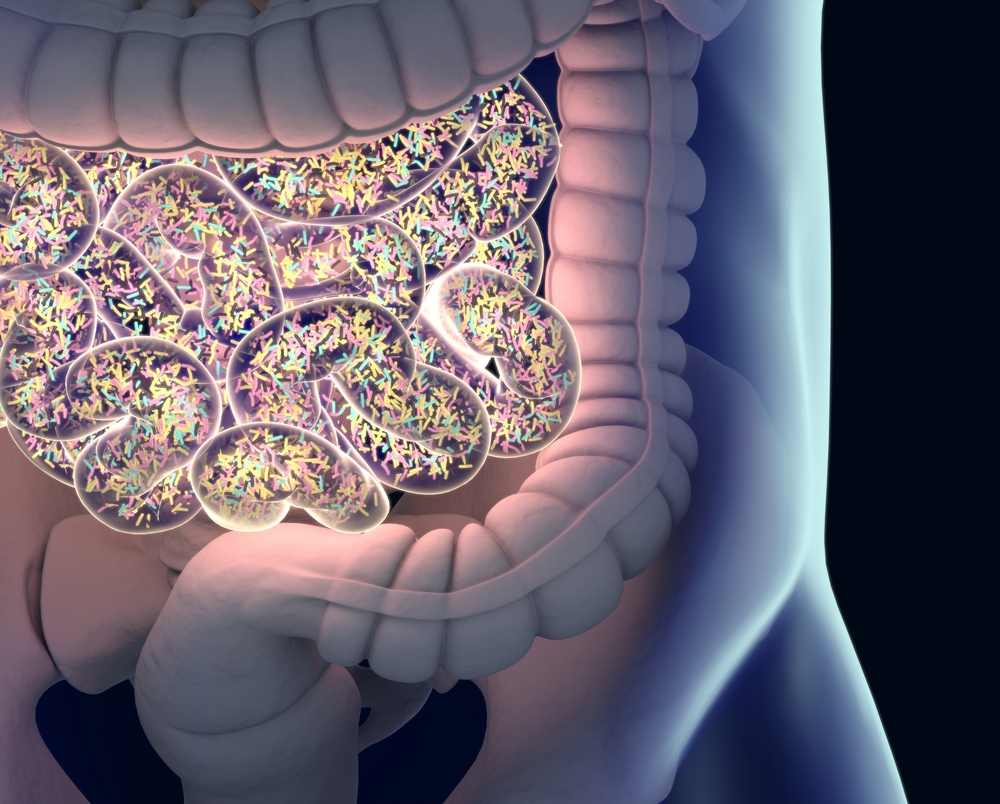Gene Variant Not Linked to Bowel Inflammation in AS Patients, Study Finds

The presence of a gene variant considered to be a risk factor for Crohn’s disease and previously associated with ankylosing spondylitis is independent of bowel inflammation and confers protection against ankylosing spondylitis, a study has found.
The study, “Association of Crohn’s disease-related chromosome 1q32 with ankylosing spondylitis is independent of bowel symptoms and faecal calprotectin,” was published in PeerJ.
Ankylosing spondylitis (AS) is a debilitating type of arthritis that mainly affects the joints of the spine, causing chronic pain and lifelong physical disability. Crohn’s disease is a type of inflammatory bowel disease (IBD) characterized by severe inflammation of the gastrointestinal (GI) tract.
“These two conditions not only demonstrate many common … characteristics, but also share a common genetic risk. Around 10% of AS patients go on to develop true [Crohn’s disease], and a similar proportion of [Crohn’s disease] patients develop AS,” the researchers stated.
Indeed, previous genome-wide association studies (GWAS) have found that several genes considered to be risk factors for Crohn’s disease have also been considered risk factors for AS. GWAS are studies based on a method that scans the genome — all the genes present in our DNA — looking for specific types of genetic alterations found more frequently in people with a particular disease.
In this study, a group of investigators from the University of Otago in New Zealand and their collaborators set out to explore whether the presence of gene variants considered risk factors for Crohn’s disease and previously linked to AS could be associated with bowel inflammation in AS patients.
The study involved 308 Caucasian AS patients who had no history of inflammatory bowel disease and 568 healthy individuals (controls). All participants were genotyped for 10 gene variants previously associated with an increased risk of Crohn’s disease.
The presence of inflammation or other symptoms of disease in the bowels of AS patients was assessed using the spondyloarthritis modification of the Dudley Inflammatory Bowel Symptom Questionnaire (DISQ). Levels of calprotectin found on the stool (high levels are linked to bowel inflammation) were also measured in 157 AS patients.
Analysis showed that two single nucleotide polymorphisms (SNPs) — variations in a single nucleotide (the building blocks of DNA) in the DNA sequence of a gene — one in chromosome 1 (rs11584383) and the other on the coding sequence of the IL23R gene (rs11209026), actually protected individuals from developing AS.
However, after statistical corrections, only the association of the rs11584383 SNP with AS remained significant.
According to the authors, this unexpected finding could be explained by the fact that the rs11584383 SNP may not be a marker of bowel inflammation as previously thought, but a marker of sacroiliitis (a type of joint disease) that Crohn’s disease patients also tend to have.
Another possibility could be that rs11584383 may control the activity of different genes that play different roles on each disorder.
Further analysis showed that neither the DISQ score nor the levels of calprotectin found on patients’ stool had an impact on the association between rs11584383 and AS.
“[W]e provide preliminary evidence that the association of … SNP rs11584383 with AS is independent of bowel inflammation as assessed by non-invasive markers. To strengthen and confirm this preliminary finding, further studies which incorporate histology or colonoscopy are needed,” the scientists said.






